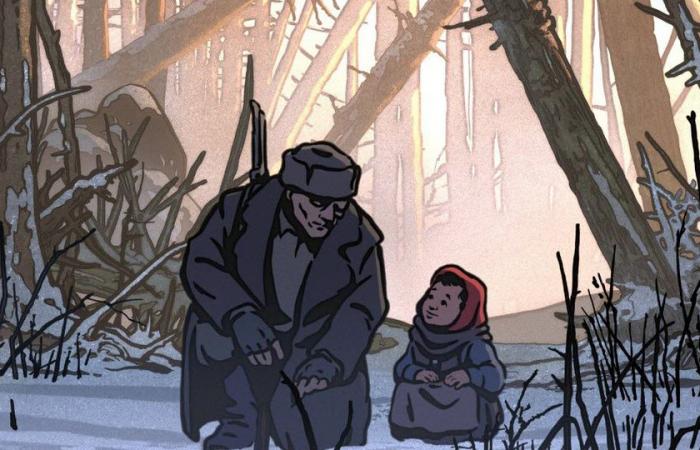The most precious load – 6 points
The most precious goodsFrance/Belgium, 2025
Address: Michel Hazanavicius
Script: Michel Hajanavicius, based on a story by Jean-Claude Grumerg
Duración: 81 minutes
Interpreters: Dominique Blanc, Grégory Gadebois, Serge Hazanavicius y La Narracción de Jean-Louis Trintignant.
Exclusive premiere in Salas.
“They say that this story is a story, that none of this happened. Neither trains nor fields, nor the pain of mothers and fathers looking for their children. Yes, they say that none of that is true. But they say so many things.” With these words, recited by the spent but tremendously expressive voice of Jean-Louis Trintignant, The French director Michel Hazanavicius Choose to make a declaration of principles in The most precious loadyour last movie, released at the Cannes Festival.
Through them he gives a collective voice, an indeterminate “they”, the power of a certain consensus, of a certain common sense. They are “they” who claim that all that could be summarized as the past -a very specific part of the past – It never really happened. Or at least not as they tell it. But how do they tell who? Is it that alpion to that mysterious “they” implies a concrete “we”? And who are we “we”?
https://geo.dailymotion.com/player/xt5ee.html?video=x9j6wis
At that point, after having witnessed the story that is told in The most precious loadthose tacit questions They demand answers They are not so complicated to give. They imply for the spectator not only an active position in the face of what has just been seen, but also in the face of that past that there are never occurred. And even more, in front of Reverberances of that past that are still clear today.
The story begins with That delicate balance between tenderness and cruelty which characterizes fairy tales. A couple of woodcutters who live in the forest survive as can famine and misery caused by “the great war.” Alone and without having fulfilled her dream of being a mother, one morning under a copious snowfall she sees the train pass and begs her to leave some leftovers to calm her cold and hunger. But what the train leaves is a baby. Her happiness will contrast with the lumberjack’s fury upon learning of the novelty. “If you come from the train: Do you know what race it is?” He asks. “It’s a ruthless! They killed God, they are thieves and have no heart.”
In times of recharged denialismsHazanavicius chooses to narrate a Dark fable that tries to be a slap for those who insist on serruquo history to taste. Or worse: deny others not only the dignity of an identity, but the right to existence. And although the film refers to Holocaustit is very easy to project your message on very specific conflicts of the present. The denialism is still there, they vocife, do not hide. The intention of the film is clear and even nobleit could be said. As clear as the decision of stack tragedy on tragedy, An impulse that aims more to stir the spectator’s heart of what adds to the dramaturgy of the story.






